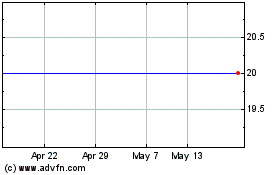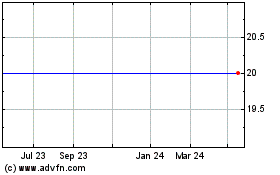Pall Corporation - Re Blood Filtration
July 20 1998 - 3:35AM
UK Regulatory
RNS No 5044p
PALL CORPORATION
17th July 1998
( BW)(PALL)(PLL) Government of UK Announces Decision to Remove
Leukocytes from All Blood and Blood Products
EAST HILLS, N.Y.--(BUSINESS WIRE)--July 17, 1998--
United Kingdom joins many European countries in requirement to
filter all blood, states Pall Corporation, the world leader in
filtration technology
The United Kingdom announced its decision to require leukocyte
(white blood cell) reduction of all units of blood and blood products
derived from whole blood prior to transfusion into a patient. In a
statement released today, the Deputy Chief Medical Officer of the
National Health Service, Jeremy Metters, said, "Blood in the UK remains
very safe and leukodepletion will make it safer." The United Kingdom
joins Austria, France, Ireland, Norway, and Portugal, where leukocyte
reduction by pre-filtration is already required or being implemented
to protect the public health and safety, according to Pall
Corporation, which applauded the decision.
Leukocyte filtration reduces white blood cells and the
contaminants they carry. The UK decision was made primarily to protect
its blood supply from possible contamination by a new variant of
Creutzfeld Jakob Disease (nvCJD), which may be transmitted from one
person to another by blood transfusion. nvCJD is always fatal.
Benefits of Leukocyte Reduction
"The decision of the UK to filter all blood to remove the white
cells is a major step forward in protecting the safety of the blood
supply," said Eric Krasnoff, Chairman and Chief Executive Officer of
Pall Corporation. "There have already been 27 confirmed deaths from
the terrible new disease, nvCJD. There are 25 known human viruses
that reside solely in white cells. Filtration is an important line of
defense against these diseases and, perhaps, the next as yet
undiscovered virus to appear in the blood supply.
"It is critical for the United States to move quickly to adopt
universal blood filtration," Mr. Krasnoff continued. "Currently about
17% of the blood is filtered in the US ... often for the sickest
patients. The benefits of filtration should be extended to all of us
now."
Transfusions with blood from donors other than the patient
(called allogeneic transfusion) are associated with a wide variety of
adverse effects. The leukocyte component of blood has been identified
as a potent mediator of serious clinical complications, including:
pathogen transmission, immune suppression, and platelet
refractoriness.
The 25 known infectious agents -- both viral and bacterial -- are
carried in the blood, yet donor blood is screened for only a few of
them. Even the best screening methods are imperfect. This is important
since a single donation of contaminated blood can infect many people.
Many viruses are associated exclusively with leukocytes. White blood
cells can serve as reservoirs and carriers of viruses and other
infectious agents, including cytomegalovirus (CMV), Human T-cell
Lymphotropic virus (HTLV), Epstein- Barr virus (EBV), and others.
Leukocyte reduction has been frequently shown to reduce the number
(load) of viruses and microorganisms in blood components. Pall s
leukocyte reduction filters reduce the risk of transfusion
transmission of those cell-associated pathogens.
There is increasing evidence that blood transfusions have a major
impact on the immune system of patients undergoing surgery. Studies
have shown that leukocyte reduction reduces transfusion-associated
immune suppression and helps protect patients from post-surgical
infection, reducing both morbidity and mortality. This also helps
decrease the length of hospital stay and significantly decreases
hospital costs.
Cancer patients, including leukemia and bone marrow transplant,
who require platelet transfusion as a critical part of their
treatment, can develop antibodies to their transfusion. It has been
shown that leukocytes are responsible for the induction of these
antibodies resulting in refractoriness (or rejection) to the
transfusion. Filtration of leukocytes is a well-proven technique to
help prevent this life-threatening complication, while also reducing
the overall utilization of blood products and associated costs.
nvCJD and Blood: Possible Human-to-Human Transmission
There have been 27 reported cases of new variant Creutzfeld-Jakob
Disease in the United Kingdom. All of the victims have died. No cases
to date have been reported in the United States. Both nvCJD and CJD
are considered transmissible spongiform encephalopathies (TSE).
There has been increasing concern over the possible transmission
of TSEs through blood products. Studies have shown that B lymphocytes
(a type of leukocyte or white blood cell) may be a vector for
infection. For this reason, many countries are taking the
precautionary measure of filtering white blood cells from all blood to
be used for transfusion.
Blood Filtration in the United States
In the United States, about 12 million units of blood are
collected each year for the one in 20 people who will need a
transfusion in their lifetime. Some 60 to 70 percent of platelet units
and 20 percent of red blood cell units are pre-filtered by individual
hospitals, which have made the decision to provide this extra measure
of protection to their patients. Until recently, only patients
considered at high risk were given filtered blood. Today, more and
more hospitals are converting to 100 percent leukocyte reduction by
filtration. The U.S. Department of Health and Human Services Blood
Safety Committee and Congress are also reviewing the need to enhance
the safety of the U.S. blood supply in relationship to new and
emerging infectious agents.
About Pall
Pall Corporation is a leader in filtration technology with the
broadest filtration and separations capabilities in the world. The
company develops and manufactures filters that are used by a diverse,
worldwide customer base, primarily in health care, aeropower, and
fluid processing.
In health care, Pall's largest business segment, Pall filters are
found in many aspects of medical and hospital practice, as well as in
pharmaceutical manufacturing, making a valuable contribution to
patient protection and raising the quality of patient care. Pall
Corporation believes that all patients requiring a blood transfusion
should be provided with the information they need to make an informed
choice including a discussion with their physician on risks and
benefits and transfusion options.
Pall Corporation, with annual sales over $1 billion, is based in
East Hills, New York, and employs 9,000 people throughout the world.
The Company's shares are listed on the New York Stock Exchange (PLL)
and the London Stock Exchange (0668260).
For more information on leukocyte reduction or for the booklet,
"Knowing Your Options," please visit the consumer information web site
underwritten by Pall Corporation at http://www.bloodtransfusion.com.
CONTACT: Pall Corporation, East Hills
Jeremy Hayward-Surry
516/484-5400
END
MSCFDFLFVDKFBKV
Equatorial Palm Oil (LSE:PAL)
Historical Stock Chart
From Jun 2024 to Jul 2024

Equatorial Palm Oil (LSE:PAL)
Historical Stock Chart
From Jul 2023 to Jul 2024
